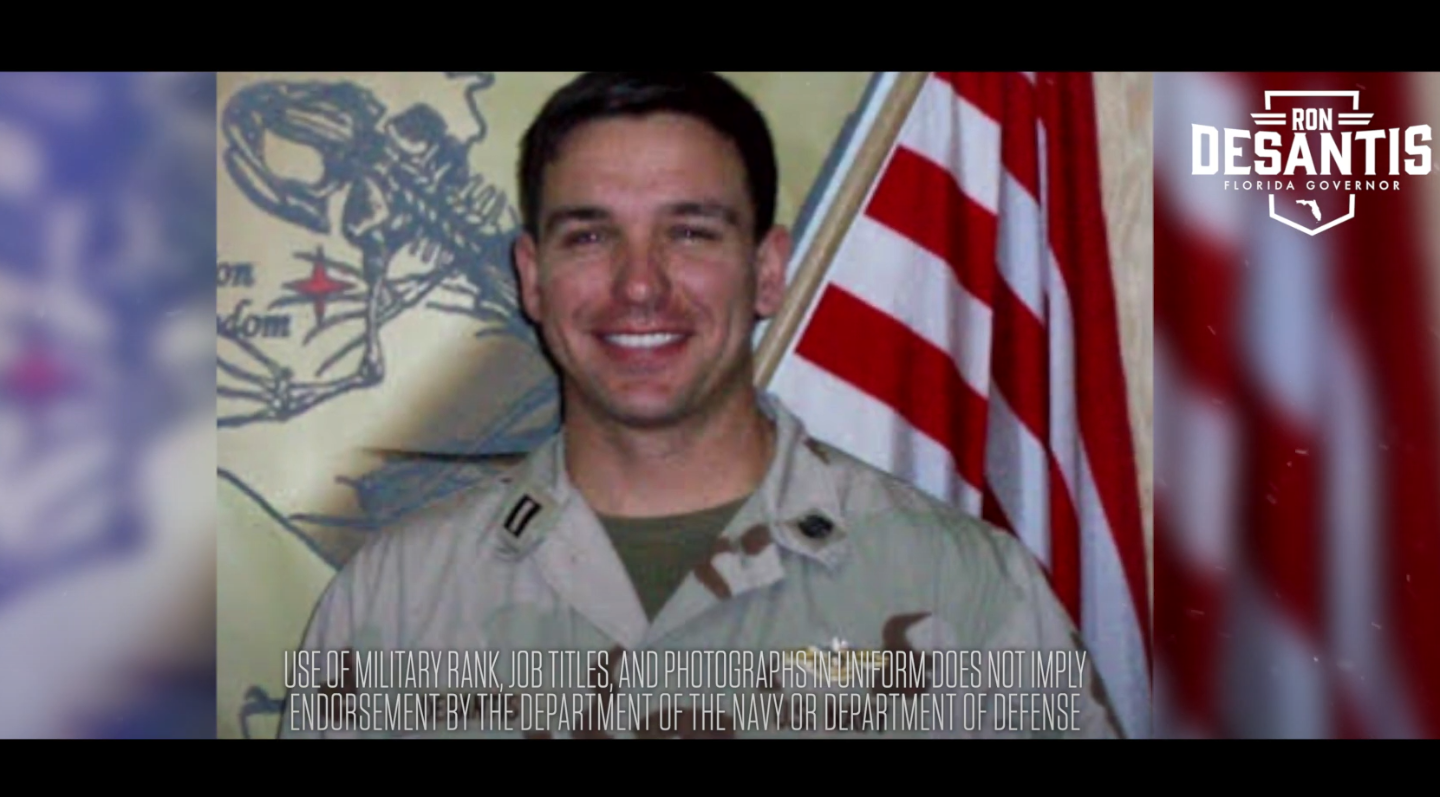
Screenshot via Ron DeSantis/YouTube

Audio By Carbonatix
Republican Gov. Ron DeSantis has long touted Florida as “the most veteran-friendly state” in the nation.
Yet, under his watch, the Sunshine State has executed five veterans. More than two dozen remain on death row, and one of them – 67-year-old Kayle Bates – is set to be put to death on August 19, according to a letter from a group of veterans urging the governor to end executions of former service members.
At 11 a.m. today, a delegation of veterans will gather at the Challenger Learning Center in Tallahassee to present the letter, signed by more than 130 vets representing “at least 1,400 years of service in nearly every branch of the U.S. Armed Services,” calling on DeSantis to halt the executions.
“We can never be a veteran-friendly state when our leader is signing off on their deaths at the hands of the State,” the letter (attached at the bottom of this story) reads. “We urge you now to lead from a place of bravery, to return to the honor code from your service, and to stop setting the executions of our fellow soldiers.”
Florida has carried out nine executions so far this year – more than any other state and the most under any governor since the death penalty was reinstated in 1976.
And the number is expected to continue rising.
As this story goes to press, Bates is scheduled to be executed on August 19. If the state proceeds with the execution, he will be the fourth veteran and tenth person executed in Florida this year, according to the letter.
Another man, Curtis Windom, is scheduled to be executed on August 28.
In a high-profile case earlier this year, Florida executed army combat veteran Jeffrey Hutchinson, who was reportedly left with severe mental health issues after serving in the Gulf War. Hutchinson’s lawyers said he suffered from post-traumatic stress disorder and “paranoia related to his claim that he had been targeted by government surveillance.”
The veterans’ letter to DeSantis notes that the military instills a code of honor to “leave no one behind,” particularly mentally injured soldiers, Marines, sailors, and airmen.
“To execute a veteran who was broken by war and left without adequate care is not justice,” the letter reads. “It is a failure of duty. It is the final abandonment.”
It continues: “As an Iraq combat veteran yourself, we believe that you know what it means to serve. We all certainly do. We know what it means when no one comes for you after the fight. We know the discipline, the sacrifice, and the silent wounds that follow you home.”
DeSantis has long trumpeted his military background.
After graduating from Yale University and Harvard Law School, he joined the U.S. Navy in 2004 and eventually worked his way up to lieutenant.
In 2006, he was stationed at Joint Task Force Guantanamo as a young Navy lawyer and was deployed to Iraq the following year, where he was a “senior legal adviser to the SEAL who commanded Special Operations Task Force-West in Fallujah, Navy Capt. Dane Thorleifson,” according to the Miami Herald.
DeSantis was honorably discharged from active duty in 2010 and served in the Naval Reserves until 2019, when he was sworn in as Florida’s 46th governor.